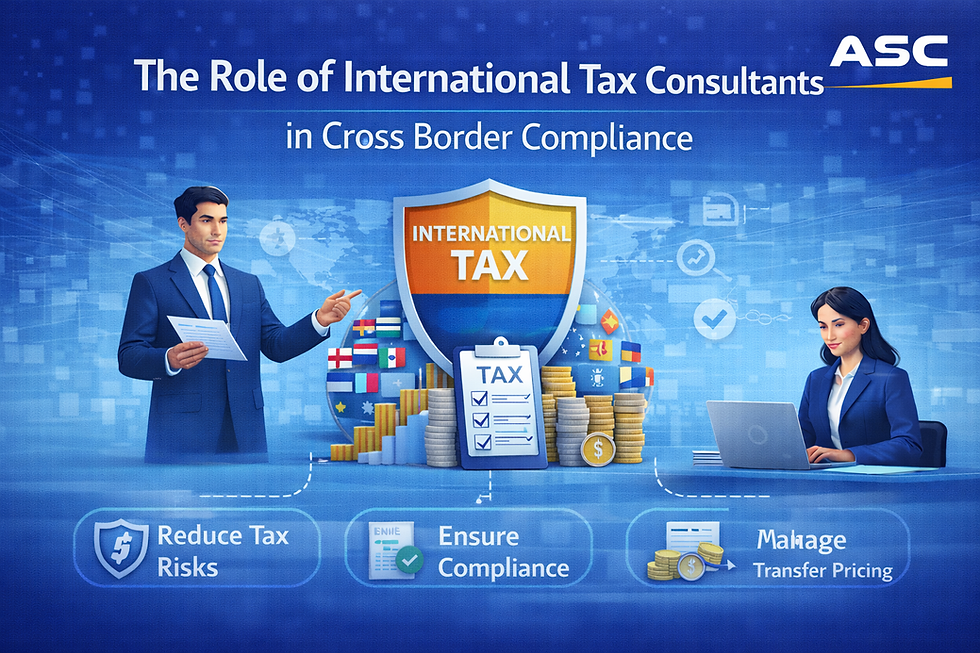How to Apply for BIS Certification for Chains for Motorcycles (IS 11740)?
- ASC Group
- Nov 6, 2025
- 4 min read
If you manufacture or import chains for motorcycles in India, obtaining certification under Bureau of Indian Standards (BIS) is a key step. The relevant standard here is IS 11740 (“Chains for Motorcycles – Characteristics and Test Methods”), which sets the benchmark for safety, durability and performance. Without valid BIS Certification or BIS Registration, your product may face restrictions or legal issues in the Indian market.
In this blog, we’ll walk you through the process of applying for BIS Certification (or BIS Registration) for motorcycle chains under IS 11740 — in a way that’s easy for beginners but also useful for experienced players. We’ll also highlight how a professional team like ASC Group (a trusted BIS Certification Consultant) can make the process smoother and worry-free.
Understanding IS 11740 and Why It Matters
What is IS 11740?
IS 11740 is the Indian standard that covers motorcycle chains (both bush chains and roller chains) including their material, size, tensile strength, fatigue performance, dimensions, and test methods.
Why BIS Certification is Important
Ensures product safety and reliability for end users.
Legal requirement in India for market access (in some cases).
Helps build brand credibility — customers trust products marked with BIS or ISI license.
Without certification/registration you may face import or sales restrictions, recalls or penalties.
Who Should Apply?
Domestic manufacturers of motorcycle chains in India.
Importers or brand owners bringing chains into India for resale.
Components suppliers supplying to OEMs (vehicle makers) who must comply with IS 11740.
If any of these apply, you should consider applying for BIS Certification or BIS Registration under this standard.
Step-by-Step Guide to BIS Certification under IS 11740
Here’s a simplified breakdown of how you can apply:
1. Product Classification & Scope
Identify that your product (motorcycle chain) falls under IS 11740.
Decide what type (bush chain / roller chain) and designation (e.g., 420, 428H etc) you will cover.
Determine whether the route is BIS Certification (licence) or BIS Registration (depending on regulations).
2. Factory Setup & Documentation Preparation
Prepare a dossier including:
Company registration documents, manufacturing licence or incorporation certificate.
Factory layout, manufacturing process, quality control plan.
Machinery, test equipment list.
Sample specifications, chain design, drawing, material certificates.
Quality assurance plan, in-process checks, test records. (See Product Manual for IS 11740)
3. Laboratory Testing
Select a BIS-recognised / NABL accredited laboratory.
Submit sample chains (and possibly associated sprockets) for tests: tensile strength, length change, fatigue, dimensions etc as per IS 11740.
Retain test reports and ensure your sample meets the standard.
4. Application Filing
Register/ log in on the BIS online portal (Manakonline).
Choose correct scheme (Scheme-I / Scheme-II, depending on current regulations).
Fill required forms (Form I / VI etc) with details of manufacturing, product, test results, scope of licence.
Pay applicable fees.
5. Factory Audit / Inspection
BIS may conduct on-site inspection of your facility, quality system, production controls.
Ensure readiness: documentation organized, quality checks in place, test records available.
6. Licence Grant & Marking
Once BIS is satisfied, your licence is issued and you can use the Standard Mark (ISI mark with licence number) on your product.
Ensure the marking includes manufacturer name, licence number, batch number and date of manufacture as per Clause 3.5 IS 11740.
7. Renewal & Surveillance
Monitor periodic tests, production controls and renew licence as per BIS norms.
Keep records and be prepared for random sampling or audits.
Common Challenges & How to Avoid Them
Incomplete Documentation: Missing drawings, specifications or quality plan can delay approval.
Test Report Issues: Unclear or non-aligned reports may be rejected.
Product Classification Mistakes: Choosing wrong chain designation or scope may invalidate licence.
Audit Readiness: Poor factory housekeeping or missing records may lead to non-conformities.
Renewal Delays: Ignoring renewal timelines may result in suspension.
Working with experienced BIS Certification Consultants helps you avoid these pitfalls — ensuring smoother processing and fewer surprises.
How ASC Group Helps Bear the Load
At ASC Group, we act as your trusted BIS Registration Consultant from start to finish. Our support includes:
Product scoping and standard identification under IS 11740.
Preparation of documentation, test coordination, audit readiness.
Liaison with BIS, lab coordination and tracking application progress.
Post-licence support: renewals, scope extension and surveillance compliance.
With ASC’s guidance, you save time, reduce re-work and make sure your chains get certified properly — so you can focus on manufacturing and sales rather than paperwork.
Conclusion
Applying for BIS Certification or BIS Registration for chains for motorcycles under IS 11740 is detailed but definitely manageable. By following structured steps — classification, documentation, testing, application, licence grant and renewal — you can achieve compliance and access the Indian market confidently.
If you find the process overwhelming or want expert help to avoid mistakes and delays, working with a qualified BIS Consultant or BIS Certification Consultant like ASC Group makes sense. They bring clarity, efficiency and support so your product meets standard, your business stays compliant and your market prospects grow.
Ready to begin your BIS journey? Visit ascgroup.in to explore how they can assist you with BIS Certification for motorcycle chains or other regulated products.




Comments